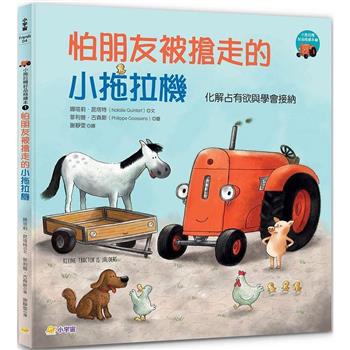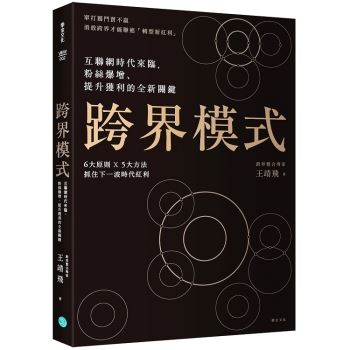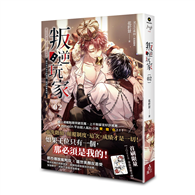譯者序
《艾略特詩選》的翻譯工作始於二○○三年。那一年,我的《神曲》漢譯由九歌出版社出版,一項長達十八年的差事結束,有如蒼天從阿特拉斯的肩膀放下,舒暢的感覺只有經歷過類似壓力的同行才想像得到。不過,喜歡翻譯之筆倒沒有患上「恐譯症」;《神曲》漢譯出版後,就把焦點從但丁移向艾略特。結果二○○三和二○○四年的暑假,全花在艾略特詩歌翻譯的新項目上。
艾略特的地位、聲譽、影響,在二十世紀的世界詩壇沒有誰堪與比擬;可是其高度與但丁比較,仍有很大的距離,大概像嵩山之於喜馬拉雅。因此動筆翻譯他的詩作時心情輕鬆,不覺得有任何壓力。阿特拉斯放下了蒼天,如果我們請他扛阿里山,他一定會微笑著說:「沒問題;把玉山也交給我吧。」
「心水清」的讀者見我這樣說,可能忍不住要竊笑:「你的翻譯項目在二○○三年開始,怎麼到二○二一年才完成?『心情輕鬆,不覺得有任何壓力』,翻譯的速度應該快些才對呀!由開始到結束,竟長達十八年,一條好漢都出來了,還好意思提甚麼『阿特拉斯』。」僅看上述資料,「心水清」的讀者笑得道理。
為了避免讓讀者說我「假、大、空」,在這裏要交代一下詩選的翻譯經過。二○○三年動筆翻譯所選的艾略特詩作後,如果筆不停揮,肯定不會「拖延」到二○二一年方能把稿子交給九歌出版社。需時「十八年」,是因為中間停了很長的一段時間。
不談創作,只談翻譯和其他項目。二○○六年,由嶺南大學轉往中文大學任教,教戲劇翻譯時不再用《羅密歐與朱麗葉》為教材,而代之以《哈姆雷特》。為了上課時給班上的同學舉例,譯了該劇的第一幕第一場。第一幕第一場譯完,竟「見異思遷」,決定請艾略特讓路給莎翁。《哈姆雷特》譯完、註完,於二○一三年由清華大學出版社出版。之後,又有三本英文學術專著「插隊」。結果能「心無旁騖」,不再斷斷續續地作業,是二○二○和二○二一年。
從上述交代可以看出,《艾略特詩選》所花的時間的確遠少於《神曲》。我這樣說,不等於承認翻譯時草率馬虎,不動腦筋;譬如譯下面兩節,由於要設法傳遞原詩的音聲效果,就花了不少工夫:
At the first turning of the third stair
Was a slotted window bellied like the fig’s fruit
And beyond the hawthorn blossom and a pasture scene
The broadbacked figure drest in blue and green
Enchanted the maytime with an antique flute.
Blown hair is sweet, brown hair over the mouth blown,
Lilac and brown hair;
Distraction, music of the flute, stops and steps of the mind
over the third stair,
Fading, fading; strength beyond hope and despair
Climbing the third stair.
( “Ash-Wednesday”, ll. 107-16)
在第三梯級迴旋的第一重
是個開槽窗口,窗腹像無花果
在盛放的山楂花和草原景色之外
一個背部寬碩的人物,衣服是藍彩綠彩,
以一枝古笛叫五月著魔。
風拂的頭髮芬芳,棕色的頭髮嘴上拂,
紫髮和棕髮;
心不在焉,笛子的樂聲,心神在第三梯級
停停踏踏,
消逝了,消逝;超越希望和絕望的力量啊
攀登著第三梯級上踏。
(《聖灰星期三》,一○七─一六行)
Where shall the word be found, where will the word
Resound? Not here, there is not enough silence
Not on the sea or on the islands, not
On the mainland, in the desert or the rain land,
For those who walk in darkness
Both in the day time and in the night time
The right time and the right place are not here
No place of grace for those who avoid the face
No time to rejoice for those who walk among noise and
deny the voice
(“Ash-Wednesday”, ll. 159-67)
言詞將在哪裏臨降,言詞將在哪裏
鳴響?不在這裏,這裏沒有充分的寂靜
不在海上也不在島上,不在
大陸區域,不在沙漠地帶或非洲雨域,
對於那些在黑暗中前行的眾人
不管在白晝時間還是黑夜時間
適切時間和適切地點都不在這裏
躲避宓顏的眾人沒有地點賜他們禧典
在喧闐中間前進而不認洪音的眾人無從同欣
(《聖灰星期三》,一五九─六七行)
除了這兩節,本書還有不少要譯者動腦筋的例子;在篇幅有限的序言裏就不再贅述了。
十八年前,我在《神曲》漢譯的《譯者序》裏說過:
一九七七年夏天,乘火車首次越過南嶺到中國大陸各省旅行。最辛苦的經歷,全發生在最初的一段時間:從廣州到杭州,從上海到北京,從鄭州到西安,都在硬座和硬臥車廂中修煉正果,在接近四十度的高溫中受炙熬;尤有甚者,是以自苦為極:旅程中不管是晝是夜,一律像百眼巨怪阿爾戈斯 (Άργος, Argos) 那樣,拒絕睡眠。旅程的最後階段,是從南京乘軟臥列車南下無錫,悠然滑行在江南的涼風中。經過挫骨勞筋的大苦之後,這段旅程的輕鬆、舒服竟無與倫比,叫我覺得,在地球上馳行的交通工具之中,沒有一種比得上江南的火車。
十八年的漢譯工作結束;此後,我的翻譯旅程,應該是南京到無錫的涼風了吧?
正如上文所說,《神曲》漢譯出版後,我譯了莎士比亞的《哈姆雷特》。譯莎翁劇作的經驗,雖然與一九七七年乘軟臥列車從南京往無錫有別,因為翻譯《哈姆雷特》也要應付各種挑戰;不過翻譯工作結束時的確覺得,翻譯《哈姆雷特》比翻譯《神曲》容易。那麼,《神曲》漢譯出版後十八年,對艾略特作品的翻譯工作又有甚麼感想呢?譯艾略特作品,雖然有《聖灰星期三》一類文字向譯筆挑戰;但與《神曲》的翻譯工作比較,仍然像乘坐軟臥列車在江南的涼風中滑行;也就是說,容易多了。
但丁、莎士比亞、米爾頓遠比艾略特博大,也遠比艾略特精深。可是,若論晦澀、難懂的程度,三位大詩人都無從望艾略特的項背。過去幾十年接觸過的中外詩人中,沒有一位會像艾略特那樣,以極度晦澀、極度難懂的文字苦讀者、論者的心志,甚至折磨讀者、論者。──荷馬不會,維吉爾不會,歌德、屈原、李白、杜甫、蘇軾也不會。
「心水清」的讀者可能再度忍不住要竊笑:「你不是『乘坐﹝著﹞軟臥列車在江南的涼風中滑行』嗎?怎麼剎那間就改口,說『艾略特﹝……﹞以極度晦澀、極度難懂的文字苦讀者、論者的心志,甚至折磨讀者、論者』?」
同樣笑得有理──在得知真相之前。
艾略特的詩,翻譯起來並不難。請看下列三節:
There I saw one I knew, and stopped him, crying: Stetson!
‘You who were with me in the ships at Mylae!
‘That corpse you planted last year in your garden,
‘Has it begun to sprout? Will it bloom this year?
‘Or has the sudden frost disturbed its bed?
‘O keep the Dog far hence, that’s friend to men,
‘Or with his nails he’ll dig it up again!
‘You! hypocrite lecteur!—mon semblable,—mon frère!’
(The Waste Land, ll. 69-76)
Lady, three white leopards sat under a juniper-tree
In the cool of the day, having fed to satiety
On my legs my heart my liver and that which had been contained
In the hollow round of my skull. And God said
Shall these bones live? shall these
Bones live?
( “Ash-Wednesday”, ll. 42-47)
Garlic and sapphires in the mud
Clot the bedded axle-tree.
The trilling wire in the blood
Sings below inveterate scars
Appeasing long-forgotten wars.
The dance along the artery
The circulation of the lymph
Are figured in the drift of stars
Ascend to summer in the tree
We move above the moving tree
In light upon the figured leaf
And hear upon the sodden floor
Below, the boarhound and the boar
Pursue their pattern as before
But reconciled among the stars.
(Four Quartets: “Burnt Norton”, ll. 49-63)
全按艾略特一輩子緊守的詩觀、詩法寫成:想盡一切方法,把詞語搭配得匪夷所思;想盡一切方法,叫讀者驚詫、駭愕;詞與詞之間,詞組與詞組之間,詩行與詩行、詩節與詩節之間,全部要互不連屬,各自為政。
譯這樣的作品難嗎?不難。譯者只要當忠實的「傳聲筒」,把匪夷所思的詞語搭配和互不連屬、各自為政的詞語、詞組、詩行、詩節轉換成另一種語言,就大功告成了,一如把液體從一個圓形容器倒進一個方形容器那樣:
那裏,我看見一個相識,就把他叫停,喊道:「斯泰森!
「是你,在邁利的艦隊中跟我一起!
「去年,你在你花園裏栽的屍體,
「開始發芽了沒有?今年會不會開花?
「還是突降的寒霜騷擾了它的苗圃?
「噢,叫那隻狗遠離這裏(他是人類的朋友);
「不然,他會用指爪把屍體再度掘起來!
「你呀,hypocrite lecteur!—mon semblable,—mon frère!」
(《荒原》,六十九─七十六行)
娘娘啊,三隻白豹坐在一棵檜樹下
在白天陰涼的時辰,而且吃了個飽
吃我的雙腳心臟肝臟,還吃藏在我顱骨中
圓形空穴的東西。於是,神說
這些骨頭該活下去嗎?這些
骨頭該活下去嗎?
(《聖灰星期三》,四十二─四十七行)
泥濘中的大蒜和藍寶石
把被嵌的輪軸涸住。
血中顫動的弦線
在根深柢固的疤痕下唱歌,
安撫遺忘已久的戰爭。
沿動脈進行的舞蹈
淋巴液的循環
繪在眾星的漂移中,
升向樹中的夏天。
我們移動,凌越移動的樹,
在圖葉之上的光中;
同時聽到下面地板滲漉,
其上有獵犬和野豬
追逐它們的秩序,一如往古,
最後卻在星際調和。
(《四重奏四首.焚毀的諾頓》,四十九—六十三行)
問題當然不是這麼簡單。不錯,翻譯上引的三節文字不難:英語讀者認得出原文的每一字(一時認不出,翻查字典後就認得出了);漢語讀者也認得出漢譯的每一字。可是,英語和漢語讀者知道艾略特說甚麼嗎?讀了上引三節,他們也許會產生某種反應(任何文字都可以叫讀者產生反應);但肯定不能像他們讀《伊利昂紀》、《神曲》、《哈姆雷特》、《失樂園》、《秋興》八首那樣,讀後有淪肌浹髓的感覺;讀後見眾星各就其位,發出璀璨的光輝。讀了上引三節,他們卻會摸不著頭腦。有誰不同意我的說法,先請他告訴讀者:「泥濘中的大蒜和藍寶石/把被嵌的輪軸涸住。/血中顫動的弦線/在根深柢固的疤痕下唱歌,/安撫遺忘已久的戰爭」是甚麼意思;然後請他翻遍但丁和莎士比亞的全集,看看他能否找到類似的謎語。
由於這緣故,譯完艾略特的詩作,就必須詳加註釋。《神曲》和《哈姆雷特》漢譯,有詳細的註釋當然最好;即使沒有註釋,讀者/觀者的閱讀或欣賞過程也不會受到太大的影響,甚至一點影響也沒有。到劇院看莎劇的觀眾,連一行註釋都沒有,但觀劇過程中不會遭遇障礙。《神曲》漢譯的讀者,即使完全不看註釋,只看作品本身,也肯定大有所獲。看艾略特的詩作而沒有詳細註釋,讀者會舉步維艱。正因為如此,本選集的註釋就特別重要了。譯其他現代詩人(如葉慈)的作品,我也會加註,給讀者一點點的方便;但即使不加註,讀者也不致寸步難行。
艾略特寫了幾十年詩,產量並不算豐碩,因此選詩的工作十分順利,也是「乘坐軟臥列車在江南的涼風中滑行」。他的名篇(如《J.阿爾弗雷德.普魯弗洛克的戀歌》、《一位女士的畫像》、《前奏曲》、《小老頭》、《荒原》、《空心人》、《聖灰星期三》、《三王來朝》、《四重奏四首》),本選集全部收錄了。讀者看了本書,再看《世紀詩人艾略特》,對叱咤世界詩壇達一百年之久的風雲人物,就認識得差不多了。
二○二一年十二月十七日 於多倫多











